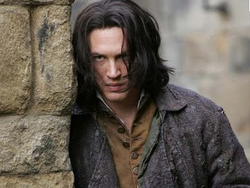
continues to manifest in pop culture today (Edward Cullen, anyone? And/or the other hundred sultry vampires on television?).
In order to gain more literary and historical context, please read the following articles online:
1. Overview of the Byronic Hero
http://teachers.sduhsd.k12.ca.us/sfarris/Files/AP%20Lit%20Files/Microsoft%20Word%20-%20Characteristics%20of%20the%20Byronic%20Hero.pdf
2. Overview of Romanticism
http://academic.brooklyn.cuny.edu/english/melani/cs6/rom.html
Considering both articles, as well as your assigned reading in
Jane Eyre, please write a post that answers the following questions.
To what extent can Rochester be considered a Byronic Hero?
Which of these qualities are attractive to Jane? Which of these qualities
contribute to the shocking revelations of 25/26 and ultimately push
her away? How might Rochester be considered bad news
to Bertha as well as to Jane? Please integrate direct quotes into your analysis.
Please also reply to at least one of your classmates.
Length: 2-3 paragraphs for original post.
1-2 paragraphs for reply to classmate.
Due: Wednesday night (Jan 16),
by midnight at the latest.
 RSS Feed
RSS Feed